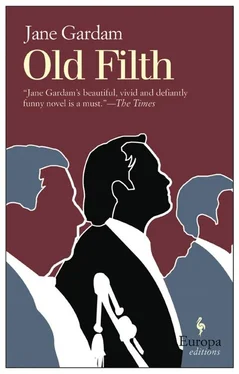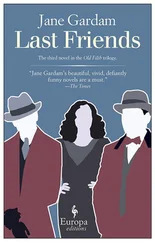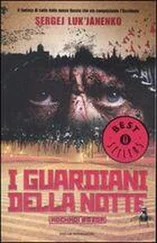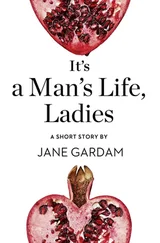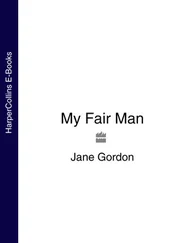I’ll walk to Bantry Street, thought Betty; his taxi might overtake me. And she struck out into the crowd. In her Agatha-Christie country clothes and pearls and polished shoes, she strode among an elbowing, slovenly riff-raff who looked at her as if she was someone out of a play. Pain and dislike, bewilderment and fear, she thought, in every face. Nobody at peace except the corpses in the doorways, the bundles with rags and bottles; and you can’t call that peace. She dropped money into hats and boxes as she would never have done in Dacca or Shanghai, and would have been prosecuted for doing in Singapore. Beggars again in the streets of London, she thought. My world’s over. Like Terry’s.
Her heart was beating much too fast and she slowed down at Bantry Street and felt in her handbag for a pill. But all was well. Here was Filth, grave and tall, being helped out of a taxi.
“Well, good timing,” he called. “Excellent. Nice lunch? Anybody there?”
“No one I knew.”
“Same here. Only old has-beens.”
Ingoldby — Feathers,” Sir had said outside the Prep school in the Lake District mountains. Ingoldby that day became not only Eddie Feathers’s first friend but a part of him. They sat down that evening side by side for the sausage supper. From the next morning they shared one of the ten double desks, with tip-up seats and a single inkwell. Listening to Pat Ingoldby’s endless talk, Eddie, at first painfully and hesitantly, began to talk, too. Ingoldby waited patiently when the clock had trouble ticking, never breaking in. Over four years the stammer healed.
Despite Sir’s strictness about no best friends and daily cold showers, nothing could be done about the oneness of Ingoldby and Feathers. They read the same tattered books from the library — Henty, Ballantyne and Kipling; picked each other for teams. They discussed the same heroes. Ingoldby was dark and slight, Eddie Feathers four inches taller and chestnut-haired, but they began to walk with the same gait. A funny pair. And they made a funny pair in the school skiff on the lake but almost always won. Ingoldby’s wit and logic expunged the nightmares of Eddie’s past. They were balm and blessing to Eddie who had met none previously. He never once mentioned the years before he arrived at Sir’s Outfit and Pat never enquired about them or volunteered information about himself. The past, unless very pleasant, is not much discussed among children.
On Sports Day, Colonel Ingoldby arrived and Feathers was introduced to him and soon Feathers was visiting the Ingoldbys in the school holidays. Sir wrote to Malaya describing the excellence of the Ingoldbys and saying that they would like to have Eddie with them for every holiday. A handsome cheque came from Kotakinakulu to Mrs. Ingoldby and was graciously received (though there had been no accompanying letter).
At fourteen both boys were to move on to the same Public school in the Midlands and Mrs. Ingoldby asked Eddie how he felt about continuing the arrangements. Would his aunts— whom he had only once seen — be jealous? Insulted? “We’ve become so used to you, Eddie. Jack is so much older than Pat. They’re too far apart to be close as brothers. I think Pat is lonely, to tell you the truth. Would you be very bored to become part of the family? Now, do say so if you would.”
“Of course I’d love to be.”
“I’ll write to your father.”
From Malaya, there was silence, except for another cheque. Nor was anything heard from the aunts. Mrs. Ingoldby said nothing about the money except, “How very kind and how quite unnecessary,” and Eddie was absorbed into the Ingoldbys’ life in their large house on a Lancashire hilltop where the Colonel kept bees and Mrs. Ingoldby wandered vaguely and happily about, smiling at people. When Pat won an award to their next school, Colonel Ingoldby opened a bottle of Valpolicella which he remembered having drunk (“Did we dear?”) on their honeymoon in Italy before the Great War. The following year Eddie won one, too, and there was the same ritual.
Mrs. Ingoldby was Eddie’s first English love. He had not known such an uncomplicated woman could exist. Calm and dreamy, often carrying somebody a cup of tea for no reason but love; entirely at the whim of a choleric husband, of whom she made no complaints. She was unfailingly delighted by the surprise of each new day.
The house was High House and stood at the end of a straight steep drive with an avenue of trees. Old and spare metal fences separated the avenue from the fields which in the Easter holidays of the wet Lancashire spring were the same dizzy green as the rice-paddies of South-East Asia. Far below the avenue to the West you could look down the chimneys of the family business which was a factory set in a deli. It was famous for making a particular kind of carpet, and was called The Goit, and through it, among the buildings of the purring carpet factory, ran a wide stream full of washed stones and little transparent fishes. “I am told our water is particularly pure,” said Mrs. Ingoldby to Eddie Feathers (“Such an interesting name”).
“I suppose it has to be, for washing the carpets,” said Eddie. “But what about all the dyes?”
“Oh, I’ve simply no idea.”
“Teddy” they called him, or “My dear chap” (the Colonel). Pat called him “Fevvers,” as at school, but otherwise often ignored him. He was different at home and went off on his own. He sometimes sulked.
“He has these wretched black moods,” said Mrs. Ingoldby, shelling peas under a beech tree. “Does it happen at school?”
“Yes. Sometimes. It does, actually.”
“D’you know what causes them? He was such a sunny little boy. Of course he is so clever, it’s such a pity. The rest of us are nothing much. I keep thinking it’s my fault. One’s mother becomes disappointing in puberty, don’t you think? I suppose he’ll just have to bear it.”
Eddie wondered what puberty was.
“I suppose it’s just this tiresome sex business coming on. Not, thank goodness, homo -sex for either of you.”
“No,” said Eddie. “We get too much about it from Sir.”
“Ah, Sir. And poor Mr. Smith.”
“Yes,” said Eddie. “And the Mr. Smiths are always changing and Sir broken-hearted and we have to take him up Striding Edge and get his spirits re-started.” Eddie had come some distance since the motor ride from North Wales.
“Your mother must feel so far from you, across the world.”
“Oh no, she’s dead. She died having me. I never knew her.”
“And your poor father, all alone still?”
“I suppose so.”
“I’m sure he loves you.”
Eddie said nothing. The idea was novel. Bumble bees drowsed in the lavender bushes.
“ My parents didn’t love me at all,” said Mrs. Ingoldby. “They were Indian Army. My mother couldn’t wait to get rid of me to England. She’d lost several of us. Such pitiful rows of little graves in the Punjab and rows of mothers, too. But she really wanted just to ship me off. I’m very grateful. I went to a marvellous woman and there was a group of us. We completely forgot our parents. My mother ran off with someone — they did, you know. Or took to drink. Not enough to do. They used to give orders to the Indian servants like soldiers — very unbecoming. Utterly loyal to England of course. Then my father lost all his money. He was rather pathetic, I suppose.”
“D-d-did he come to see you? In England?”
“Oh, I suppose so. Yes. I went to live with his sister, my Aunt Rose, when I grew up. It was very dull but I had nice clothes and she was very rich. I was never allowed to be ill. She was what is known as a Christian Scientist. Influenza in 1919 was tiresome. Everyone was dying. When my father turned up one day, a footman answered the morning-room door if you please (Aunt Rose had never opened a door in her life), and she just said, ‘Oh, there you are, Gaspard. You must be tired. Here is your little girl.’ D’you know, he burst into tears and fled. I can’t think why. Oh, how lucky I was to meet the Colonel.”
Читать дальше
